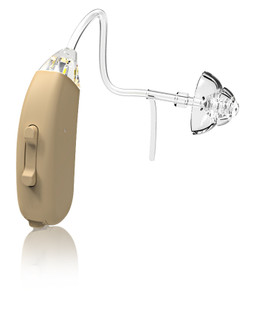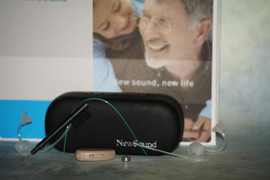Financial Assistance and Insurance Options for Hearing Aids
Posted by DR Paul on Jun 03, 2024
Hearing aids are crucial devices that significantly improve the quality of life for seniors and those with hearing impairments. However, the costs associated with these advanced devices can be daunting. Fortunately, there are a variety of financial assistance programs and insurance options available that can help make living with hearing aids more affordable.
Understanding the Cost of Hearing Aids
Before exploring financial assistance and insurance options, it’s important to understand the costs involved. Hearing aids vary in price based on their type and the technology they use. For example, digital hearing aids often cost more than their analog counterparts due to their advanced features. Common types of hearing aids include Behind-The-Ear (BTE) and Receiver-In-Canal (RIC) models, each offering different benefits and price points.
Common Hearing Aid Cost Factors
Type of Hearing Aid: BTE and RIC hearing aids have different costs.
Technology Level: Basic models are cheaper but may lack advanced features found in digital hearing aids.
Brand and Model: Premium brands and latest models usually command higher prices.
Additional Features: Tinnitus management, Bluetooth connectivity, and rechargeable batteries can increase the cost.
Hearing Aid Financial Assistance Programs
Several organizations and programs provide financial assistance specifically for hearing aids. These options can help reduce out-of-pocket expenses and make hearing aids more accessible.
Government Programs
Medicaid: In some states, Medicaid covers the cost of hearing aids for eligible adults. Check your state’s specific Medicaid policies for details.
Veterans Affairs (VA): Veterans who qualify for VA healthcare can receive hearing aids at no cost through the VA.
State Vocational Rehabilitation Programs: Some states offer assistance through vocational rehabilitation programs aimed at helping individuals with disabilities, including hearing loss, find and maintain employment.
Online Hearing Aid Websites
Online websites like Hear-Better.Com have amazing prices on hearing aids.
Nonprofit Organizations
Hear Now by Starkey Hearing Foundation: Provides hearing aids to low-income individuals. Applicants must meet specific financial criteria.
Lions Club International: Many local chapters offer programs that provide financial assistance for hearing aids.
Audient Alliance: Offers reduced-cost hearing aids for individuals with limited financial resources.
Manufacturer and Retailer Programs
Manufacturer Discounts: Some hearing aid manufacturers offer discounts or payment plans. Popular brands like Oticon, Phonak, and Signia often have such programs.
Retailer Financing: Retailers like Hear-Better.Com offer financing options that allow for manageable monthly payments instead of a lump sum.
Insurance Coverage for Hearing Aids
Securing insurance coverage for hearing aids can significantly reduce the financial burden. However, coverage varies widely depending on the insurance provider and policy.
Private Health Insurance
Employer Plans: Some employer-sponsored health insurance plans include coverage for hearing aids.
Individual Plans: It’s crucial to read the fine print, as coverage for hearing aids is not standard in all individual health plans.
Medicare
Currently, Original Medicare (Part A and Part B) does not cover hearing aids. However, some Medicare Advantage Plans (Part C) offer hearing aid coverage. Beneficiaries should check their specific plan details to understand what is covered.
Medicaid
Medicaid provides hearing aid coverage in some states. Coverage criteria and the extent of benefits vary, so it’s essential to consult your state’s Medicaid program for precise information.
Other Insurance Options
Supplemental Insurance: Some supplemental insurance plans, like those from AARP, offer hearing aid benefits.
Discount Programs: Certain organizations and insurance companies offer discount programs specifically for hearing aids, which can help reduce costs even if full coverage is not available.
Tips for Affording Hearing Aids
Navigating the financial landscape of hearing aids can be challenging, but these tips can help make the process smoother:
Shop Around: Compare prices from various retailers and online stores like Hear-Better.Com.
Negotiate: Don’t be afraid to negotiate the price with your audiologist or hearing aid provider.
Look for Sales: Keep an eye out for sales, discounts, and promotions from hearing aid manufacturers and retailers.
Consider Used or Refurbished: Some reputable providers offer used or refurbished hearing aids at a fraction of the cost of new ones.
Conclusion
Living with hearing aids doesn’t have to be a financial strain. By exploring various financial assistance programs and insurance options, you can find the support you need to afford these essential devices. Remember, investing in your hearing health is an investment in your overall well-being.
If you have questions or need further assistance, don’t hesitate to reach out to our team at [Your Organization]. We’re here to help you hear better and live better.
---
By understanding the costs, exploring financial assistance, and leveraging insurance options, you can make an informed decision about purchasing hearing aids. For more information on hearing aids, their benefits, and tips on making the most of them, visit our website or contact us directly.










